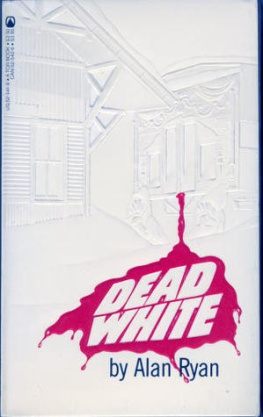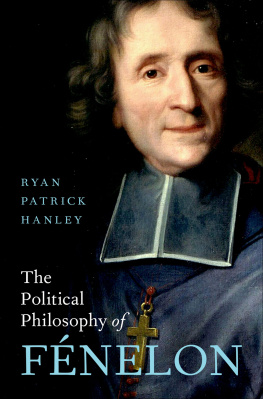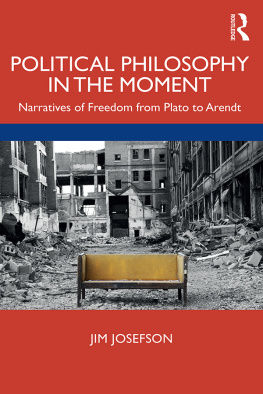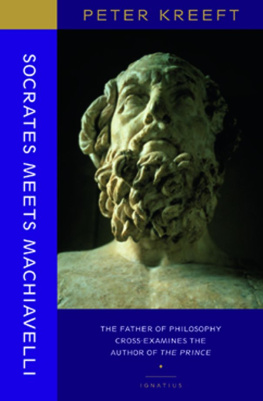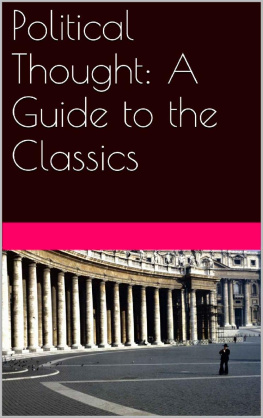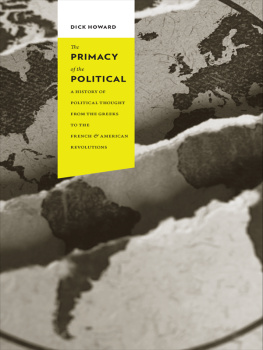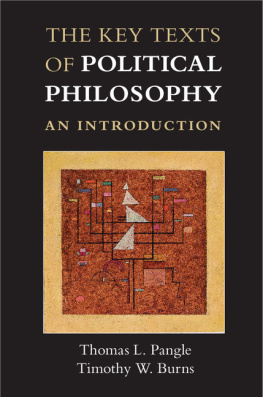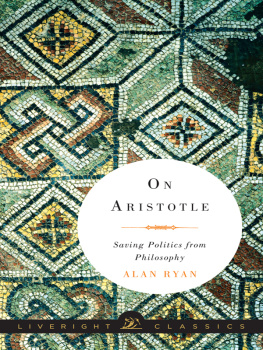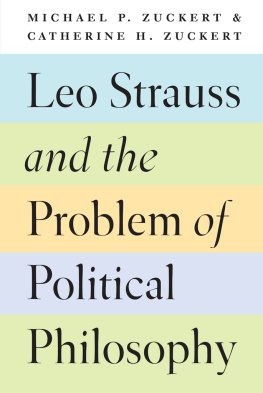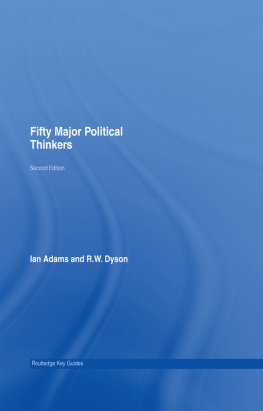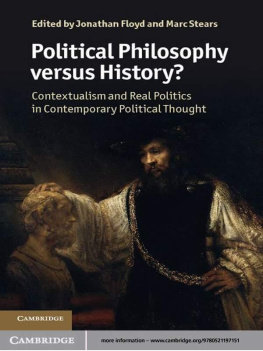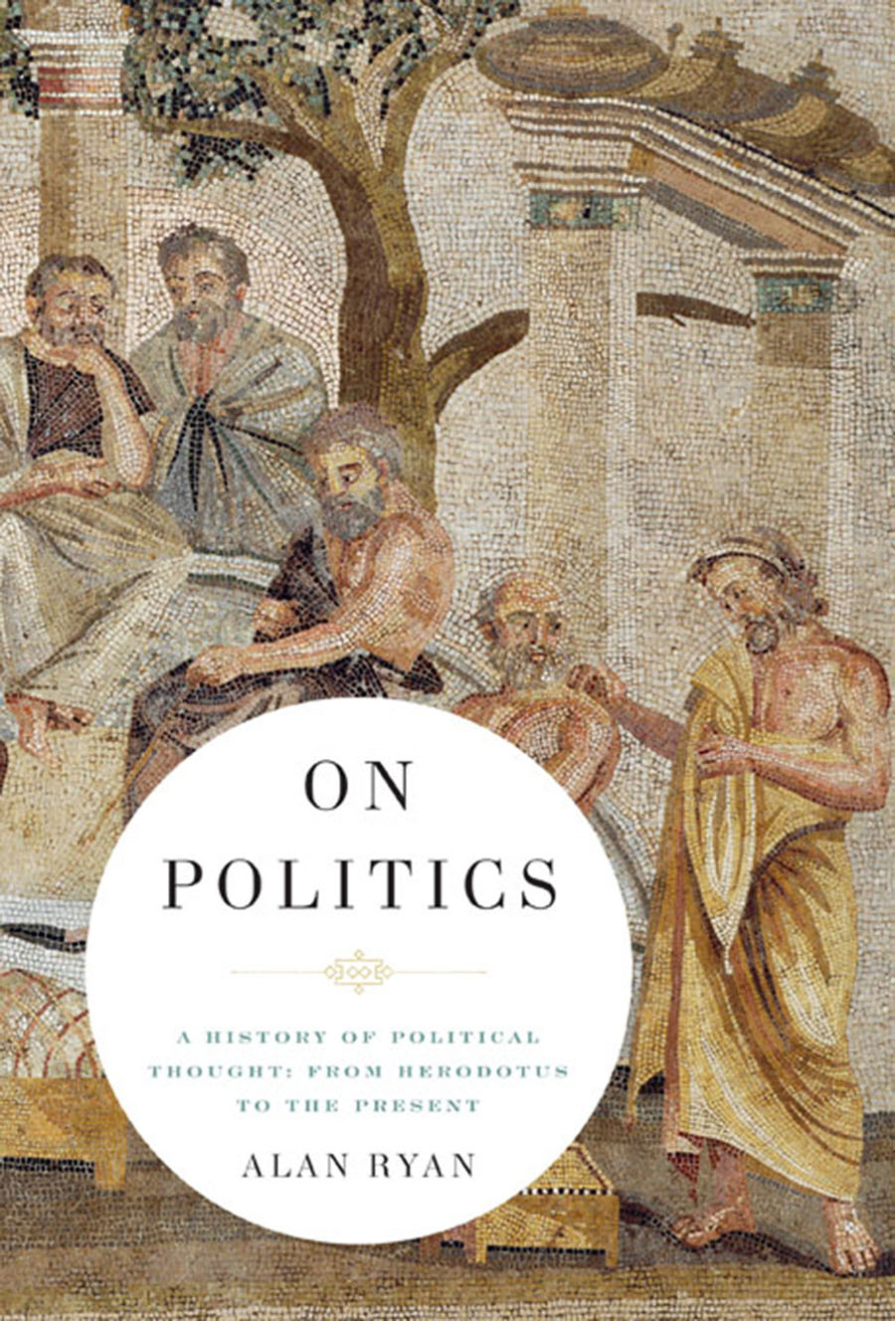
ALSO BY ALAN RYAN
The Philosophy of John Stuart Mill
The Philosophy of the Social Sciences
J. S. Mill
Property and Political Theory
Property
Bertrand Russell: A Political Life
John Dewey and the High Tide of American Liberalism
Liberal Anxieties and Liberal Education
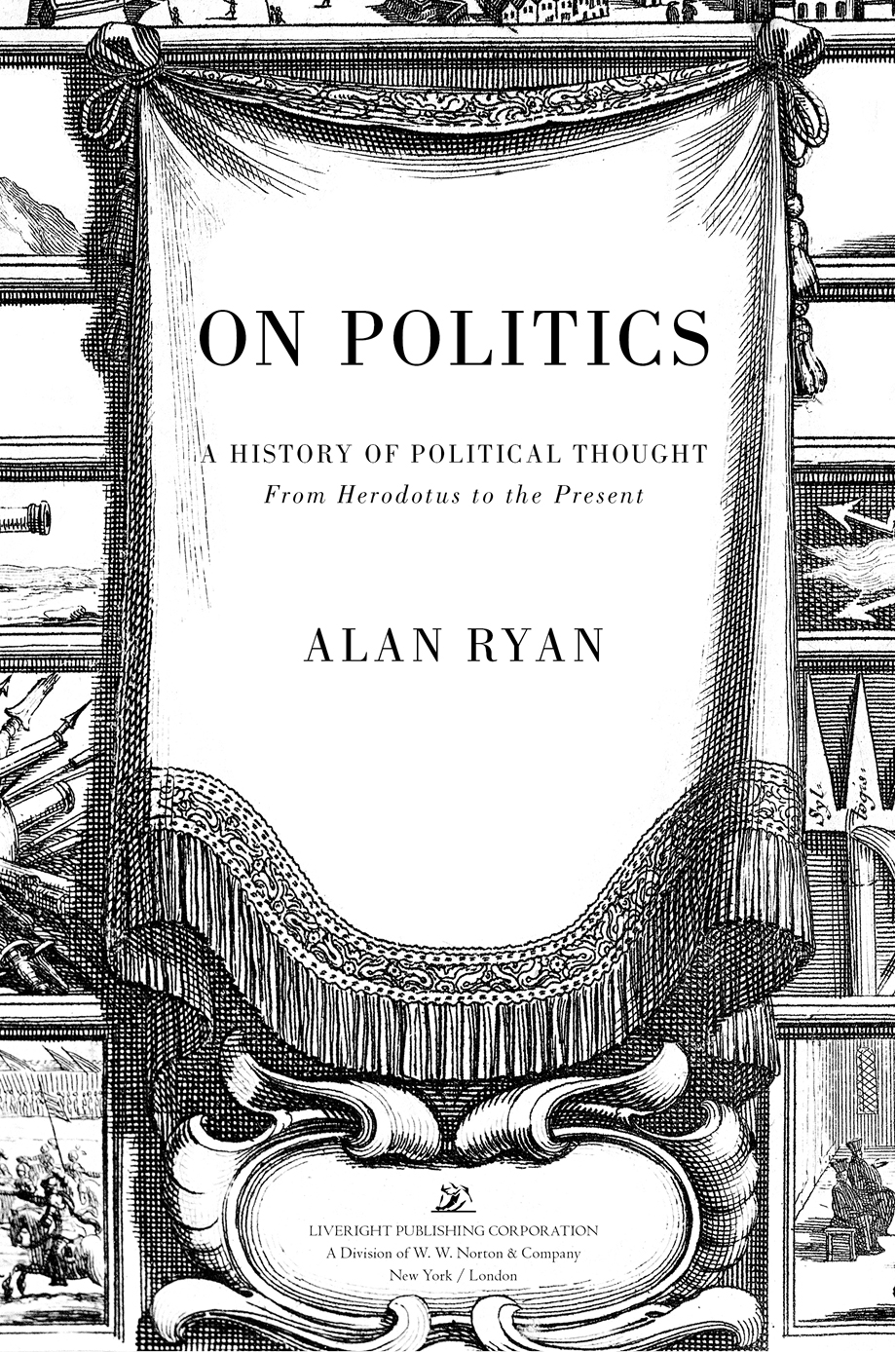
FOR YURI RYAN SIMONOVICH
CONTENTS

Introduction: Thinking about Politics

T HIS IS A LONG BOOK, and a long time in the making. At first, I was reluctant to embark on it at all, knowing how long such projects take. In 1892 the brothers R. W. and A. J. Carlyle began to write an account of medieval political theory. The six volumes appeared between 1903 and 1936; by the time the final volume of A History of Mediaeval Political Theory in the West appeared, Sir Robert Carlyle had been dead two years; he did not die young, but at the age of seventy-five in retirement from a long career in the India Office. It remains an indispensable source for students of the subject, but today it would be the work of a team of authors and research assistants. When a publishing friend suggested thirty-five years ago that I might write a successor to George Sabines History of Political Theory , I thought of the Carlyles and demurred. It was not merely that I had no brothers to help meRobert Carlyle was fully employed in managing the affairs of India; most of the work fell to his brother, a historian at Oxford. More importantly, I was not sure what would give a long book its intellectual unity. If history is, as Henry Ford inelegantly put it, one damn thing after another, was the history of thinking about politics merely one damn thinker or one damn idea after another? Was it even, as Macbeth more elegantly but more despairingly might have feared, a tale full of sound and fury signifying nothing, a chronicle of verbal fisticuffs at the end of which we were no wiser than at the beginning? But a flood of interesting work then appeared on particular writers and particular historical periodsQuentin Skinners Foundations of Modern Political Thought , for instance, or John Pococks work on the history of republican thought, The Machiavellian Moment . The plot formulated itself behind my back.
I start with Herodotus because the question turned out to be whether the Persians had defeated the Greeks, and we could do nothing about it. Perhaps the modern world, modern politics, and the modern state were the delayed revenge of the Persian Empire on the victors of Marathon and Salamis. The Greeks, and particularly the Athenians, fought to protect a distinctive and distinctively political way of life. In their view, the subjects of the great king of Persia were to all intents and purposes slaves even when not literally of a servile status. As Hegel later said, under an oriental despotism, one man alone was free. Yet Persia was an effective state, gathering taxes, administering justice, fielding armies; its subjects were more prosperous than the Greeks. It is not too fanciful to see Persia as the prototype of the modern nation-state, and not only because the U.S. Post Office is so deeply attached to Herodotuss description of the great kings messengers of whom he wrote, Neither rain, nor snow, nor heat nor gloom of night stays these couriers from the swift completion of their appointed rounds. The essence of a modern state is centralized authority, bureaucratic management, the efficient delivery of the public services that only a state can provide; Persia provided fewer services than a modern state and outsourced much of the work to officials in semiautonomous political dependencies, but the principle was there. As to the early modern states to which our own political systems are the heirs, Louis XIV may have said, Ltat, cest moi, but he knew what a state was: a legal person rather than a physical one. It was the states all-encompassing authority that he embodied in his own majestic person. It was on the states behalf that he was obsessed with the need to know whatever could be known about the resources of his kingdom and the lives of his subjects so that he could better manage their lives and resources for their own welfare.
The contrast between the Persian stateand by the same token the late Imperial Roman, Bismarckian, or modern European stateand the Greek polis is far from the only theme that dominates this story. A familiar contrast is between Athenian and Roman notions of freedom and citizenship. The Athenians practiced a form of unfiltered direct democracy that the Romans thought a recipe for chaos; the Romans gave ordinary free and male persons a role in politics, but a carefully structured and controlled one. Roman freedom was most basically a matter of not being a slave; secondarily, it was the possession of a legal status, being able to secure ones rights in court; thirdly, it carried political rights and duties, carefully graded accorded to ones financial status. It was also a status that exposed any free individual to taxation and military service, again according to financial capacity. As Rome grew, citizenship was extended to conquered cities, initially without extending the voting rights that the Romans had; the civis sine suffragio a citizen without a votewas nonetheless a free man. He could say, civis Romanus sum I am a Roman citizenand it meant something real, particularly if he was facing a court, or afraid that an official might be about to have him scourged, or detained without the prospect of a fair trial. The Athenian obsession with the right to speak and vote in the Assembly ruled out the thought that a civis sine suffragio was fully a free man; it ruled out also the thought that a citizen who was entitled to vote but not to hold any sort of judicial position was fully a free man. The Athenians associated freedom with unvarnished political equality, isegoria , or equal rights in the Assembly, and they would have regarded the Roman restrictions on access to judicial and political office as oligarchical. Variations on the argument between Athens and Rome have dominated European and American political thought since the English Civil War of the 1640s. How far we can, indeed how far we should be tempted to try to, follow the Athenians in securing the political equality of all citizens in the face of differences in wealth, education, civic-mindedness, competence, or public spirit is an unanswered question.
Much of the time, the question goes unasked in prosperous liberal democracies like Britain or the United States, because most of us see political equality as exhausted by one person, one vote and dig no deeper; we know that one person, one vote coexists with the better-off and better-organized buying influence through lobbying, campaign contributions, and use of the mass media, but we find ourselves puzzled to balance a belief that everyone has the right to use his or her resources to influence governmentwhich is certainly one form of political equalitywith our sense that excessive inequality of political resources undermines democracy. We must not sentimentalize the distant past when we wonder whether the better-off have too much political power. Although they often turned on them and dismissed them at a moments notice, the Athenians were led by men of good family. Nor should we think that the only source of political inequality in the modern world is the ability of the well-off to convert money into influence by buying politicians loyalty. If the economically less well-off organize themselves, perhaps by piggybacking on trade union membership, or ethnic or religious identity, they may be equally formidable. The discrepancy in political effectiveness in modern industrial societies is between the unorganized and the organized; money is the life blood of organization, but not money alone. Can democracies protect the public at largeunorganized individualsagainst well-organized special interests? The question plagues all modern democracies. Neither intellectually nor institutionally have we advanced very far beyond Rousseaus identification of the problem two and a half centuries ago in the Social Contract .
Next page

